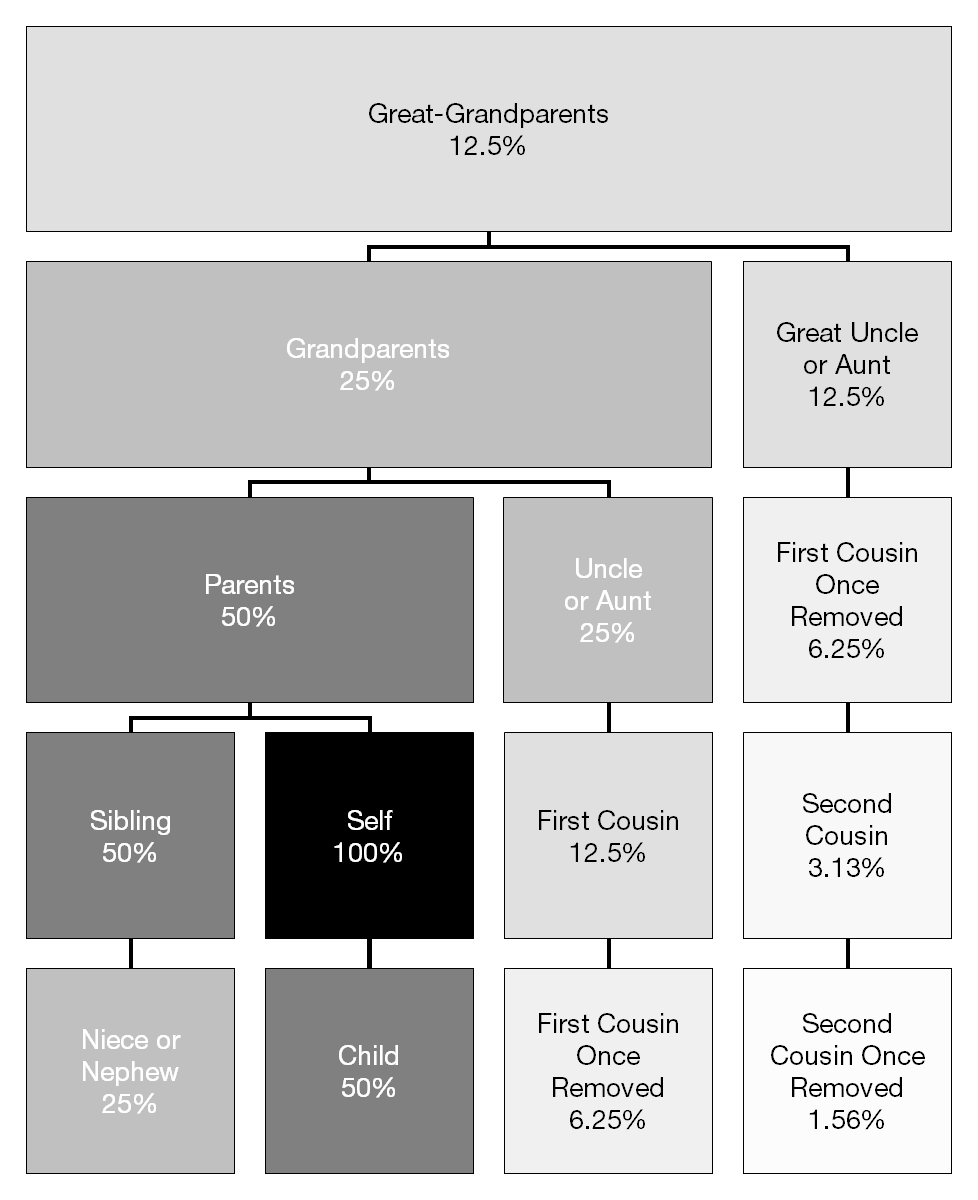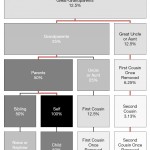Imagine two sets of identical twins: Alice & Amelia, and Bob & Benjamin. Now imagine that Alice marries Bob, and Amelia marries Benjamin, and that both couples have a child: Alice & Bob give birth to Charlie, and Amelia and Benjamin give birth to Catherine.
By law, Charlie and Catherine are first cousins (i.e. the children of your parents’ brothers and sisters are your first cousins). Genetically, however, the situation is very different: Alice and Amelia have the same genes, as do Bob and Benjamin. Charlie and Catherine will get fifty percent* of their genes from each parent, but as their parents are genetically identical they will share fifty percent of their genes with each other (rather than the normal 12.5%), making them genetically brother-and-sister. Also, because their uncle and auntie are genetic clones of their parents, Charlie and Catherine will share 50% of their genes with each of their uncle/auntie, so genetically speaking they would be indistinguishable from parents or siblings.
In the UK, marriages between cousins have been permitted since the time of King Henry VIII. If Charlie and Catherine are legally cousins, but genetically siblings, should they be permitted to marry?
* I should point out that it won’t be exactly 50% in any of these cases, but considering the huge number of genes and the population as a whole the average will be 50%.

